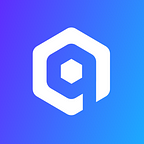Everything to Know About DAO Decentralized Autonomous Organization and How It Works
Have you ever come across the term DAO and wondered what it is? Today, we’ll dive deep into what a DAO or Decentralized Autonomous Organization is and how it works. Down below, we have discussed all the DAO 101 you need to know.
DAO — Decentralized Autonomous Organization
As the name suggests, a DAO or decentralized autonomous organization is a service without any central authority or centralization. Based on the blockchain network, the decisions made here are not central, rather decentralized and every one can take part in making their own decisions after voting via proposals.
DAO members manage and own these organizations. A DAO works without progressive administration as the decision-making is not limited to one central leadership and is done bottom-up.
One thing to clear here is that this DAO, which is a web local association and ‘The DAO’ that was one of the very first such associations made are quite different. The latter DAO was a plan established in 2016 that eventually fizzled and prompted a split of the Ethereum organization.
How Does It Work?
As we know now, a DAO is an association where decisions are made using the bottom-up approach and DAO members own and manage them. DAO makes use of Smart Contracts innovation that consists of automatically executed pieces of code. Smart contracts are utilized on various blockchains these days, however Ethereum was quick to utilize them.
Smart contracts build up the basis of DAO’s principles. Members who have a stake in a DAO are eligible to cast a ballot and may impact how the association works by settling on or making new organizing proposals.
This model keeps DAOs from being overwhelmed with proposals. A proposition will pass only once majority of the partners approve of it.
DAOs are completely independent and translucent. Since they are based on open-source blockchain, anybody can see their code. Anybody can likewise review their underlying depositories, as the blockchain records every single monetary exchange.
What is the Need for DAOs?
Being web local associations, DAOs enjoy a few upper hands over customary associations. The two parties need not have a lot of trust between them, this is one of the principal benefits of a DAO. While a customary association requires a great deal of confidence in individuals, however in case of DAOs, that is not necessary as just the code should be trusted.
After launching, each move a DAO makes must be approved and voted on by the stakeholders and is totally clear and evident.
Such an association does not have a multi-level structure. The absence of a progression implies any partner can advance an imaginative thought that the whole community will consider and develop on. Inner clashes are frequently tackled effortlessly through the democratic framework, in accordance with the pre-composed principles in the smart contract.
By permitting financial backers to pool reserves, DAOs additionally allow them an opportunity to put resources into new decentralized companies and projects while sharing the danger or any benefits that might emerge from them.
Endnotes
Over the last few years, Decentralized Autonomous Organizations have come into the spotlight. Many DAO use cases have emerged, for instance Decentralized Finance (DeFi). DAOs have immense potential and that’s why we can see an ever increasing number of use cases in the days to come.
